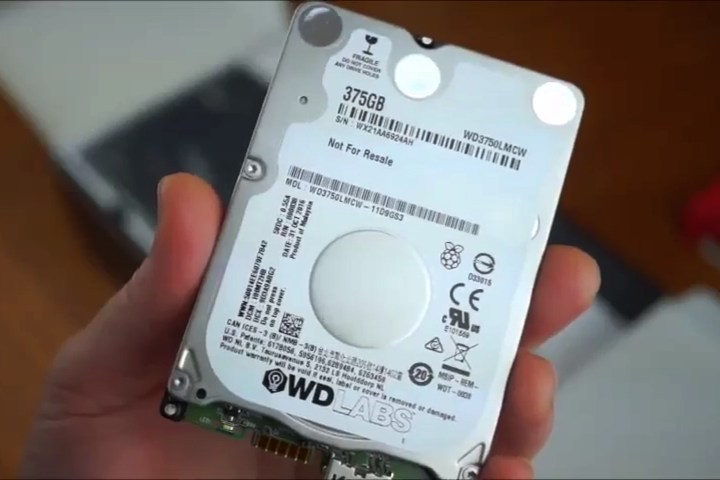
A source requesting to remain anonymous confirmed with Digital Trends that Western Digital is shutting down WDLabs. According to an email received on Thursday, several members of the team were let go while others were permanently reassigned to different departments. Western Digital also canceled all related projects indefinitely.
The news arrives by way of former WDLabs employees who informed the anonymous contact that reached out to Digital Trends. The confirmation follows a recent statement by someone claiming to be a Western Digital employee on Reddit who indicated that WDLabs may close. He said the company supposedly fired the group working under the WDLabs branch and that Western Digital has no plans to manufacture new hard drives for the Raspberry Pi board. The comment was quickly removed after it appeared on Reddit, but not before Google grabbed a copy. Liliputing originally reported on this, and received additional confirmation from an unnamed source inside Western Digital.
At the time of writing, Western Digital has not provided any official statement about a potential closing. A quick look at the WDLabs web page showed that the site was still active and showcasing the WD PiDrive, the WD PiDrive Enclosure, and other related products. The dedicated community was also still up and running here.
“WDLabs is an internal team of innovators assembled to create exciting new products for emerging customers and markets,” the home page states. “We engage directly with lead users to get honest feedback, while exploring new trends and ideas. By leveraging our engineering talent, we’re embarking on new territory to stay ahead of the curve.”
Under the WD PiDrive umbrella, WD provides five products ranging from $19 to $110 in price. For example, the WD PiDrive Compute Centre is a complete do-it-yourself kit with a Raspberry Pi 3 board, a MicroSD card preloaded with custom software, a 375GB hard drive, a black square enclosure, a wireless mouse, a wireless keyboard, and several cables (no HDMI).
The Raspberry Pi 3 is the third-generation Raspberry Pi board sold for a mere $35. The latest “Model B” edition consists of a quad-core processor clocked at 1.2GHz, 1GB of system memory, Wireless N and Bluetooth 4.1 connectivity, and a MicroSD card slot. It also includes four USB ports, an Ethernet port, an HDMI port, and other connections.
As shown here, the Raspberry Pi can be used to create all sorts of devices ranging from a portable computer for kids to a re-created Nintendo Entertainment System console. There are other boards produced by the Raspberry Pi Foundation to use as well, including the Raspberry Pi Compute Module 3 for even smaller computing devices.
Raspberry Pi devices are extremely popular, and talk that WDLabs may close should be chalked up as a mere rumor for now. However, the alleged WD employee said that customers were using the Raspberry Pi 3 and WD’s dedicated hard drive to run Bitcoin nodes, which require loads of storage. These nodes help broadcast messages across the bitcoin network, and validate transactions.
“Not sure if there will be an announcement, they might have enough inventory to last a while,” the individual said. “They aren’t going to make any more pi drives as far as I know, so if you’re interested in them I’d suggest you buy one now.”
Why WDLabs may close is unknown unless parent company Western Digital just isn’t making enough revenue off the dedicated products to keep the department running. And if what the alleged Western Digital worker claims is true, WDLabs may close without any fanfare whatsoever.
Editors' Recommendations
- Western Digital comes clean about massive security breach
- Blistering-fast Western Digital SSDs hit up to 7,300MB/s
- Amazon’s Cyber Monday sale cuts prices on Western Digital hard drives


